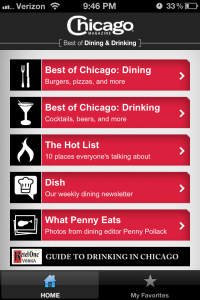You’re The Washington Post. In the past year you’ve made headlines on all the news/media blogs about an incident where a young blogger you employed passed along an inflammatory rumor as fact in one post, which damaged your reputation for truth and reporting, and poorly attributed information in another, which led to cries of plagiarism. You end up firing her. In the post-mortem, there’s a lot of talk about the value of grindhouse blogging and how it contributes to errors like this. There’s also speculation as to whether the Washington Post can adequately support such an operation.
So obviously when you’re planning on hiring an arts and style blogger a year later you pretty much structure the job with exactly the same kind of pressures that led you to fire the other blogger in the first place.
“This blogger should be able to identify trends, cutting through the noise of the Internet to bring context and perspective to a Washington audience…We envision at least a dozen pieces of content per day, with the knowledge that one great sentence can equal one great post.”
Please cut through the noise of the Internet…and publish more noise. One great sentence can be a great thought – or a great tweet, at least – and be a thing of value but it hardly leaves room for context and perspective. And the suggested topics aren’t exactly ones that cry out for more words, particularly from the Washington Post.
Objections were made to the job posting and a writer from Slate objected to all the objections saying it was a great job because it was how he got his start at New York mag’s Vulture blog back in 2007.
Yes, this would be a great job if it wasn’t at the Washington Post and you were working at a startup where the expectations are different. And maybe if this was 2007.
Not only is the Washington Post ignoring what happened last year but it’s also pretending that there aren’t countless other blogs that do this sort of thing, do it better and do it without the ethical missteps. (Vulture, for one!) Why not task a writer with 3-4 pieces per day of varying length which strike a balance between aggregation, original reporting and analysis? It would be different enough, likely offer more value and be the kind of thing that breaks through the noise. Locally, the Chicago Tribune‘s Eric Zorn and Chicago magazine’s Whet Moser produce great work in this vein and are duly recognized for elevating the conversation.
Not that I’m saying longer pieces are always the best idea. For example, an editor assigning one of its lead feature writers 1000+ words on (the midway point of?) the search for a new host of a popular public television show might not be the best use of constrained newsroom resources. How much more of a competitive advantage does that get you when you know all your competitors can write around the nut of the story by putting far fewer resources into it? Especially when the nut of the story comes down to little more than an audience data capture effort by the show* and is “influential but non-binding” according to the show’s producer?
In that case, one good sentence would have sufficed.
* Really? You need a street address for a vote? Sure you do.



